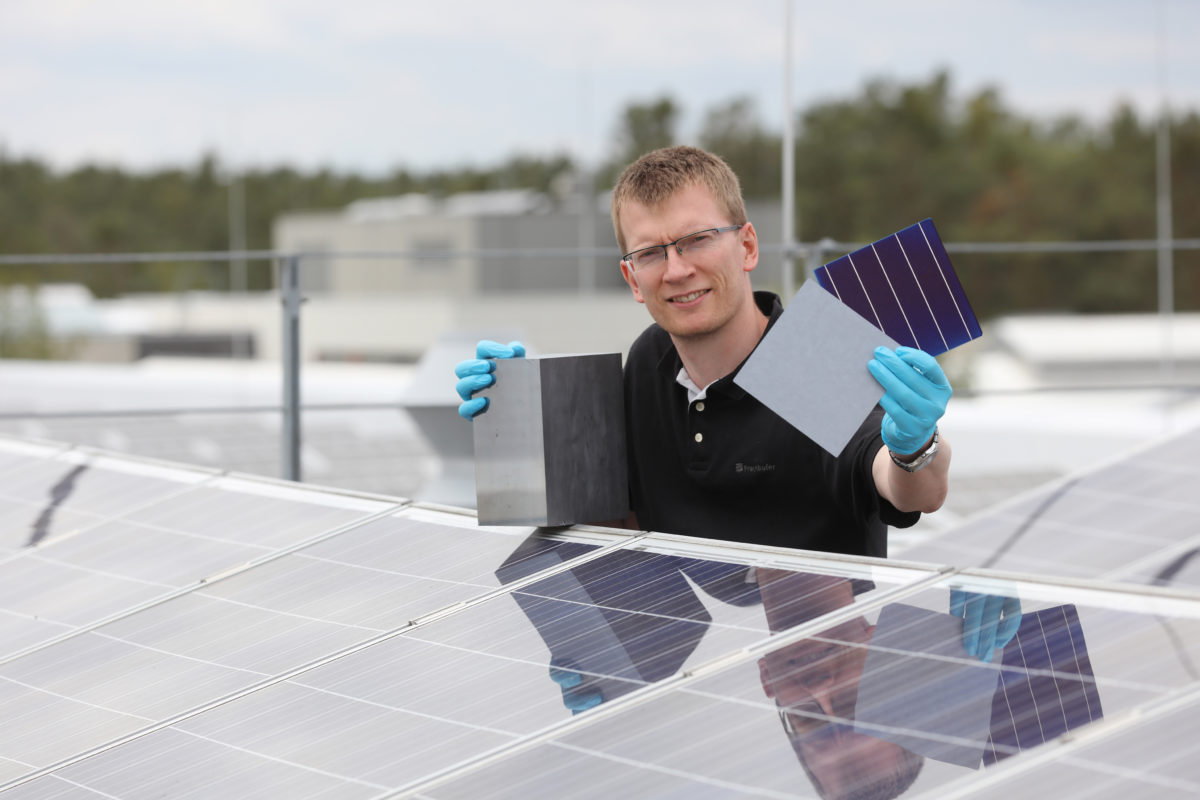From pv magazine Germany
The development of passivated emitter and rear contact (PERC) solar cell technology has enabled manufacturers to improve the efficiency of crystalline silicon cells to over 22% for monocrystalline products and about 20% for multicrystalline devices. Researchers at Germany's Fraunhofer Institute for Integrated Systems and Device Technology IISB are now coordinating Zero Degradation, a joint project studying mono- and multicrystalline PERC solar cells, to bring efficiency losses in PERC solar cells to zero.
The efficiency of PERC solar cells can drop by several percentage points during operation. The scientists want to focus on one of the main causes of efficiency loss – light and elevated temperature induced degradation (LeTID). According to the Fraunhofer IISB researchers, the mechanisms and cause of LeTID are still not sufficiently understood.
Under the framework of the project, basic investigations should initially provide a comprehensive understanding of the process and material dependency of LeTID and related degradation effects in monocrystalline and multicrystalline PERC solar cells. The researchers want to find the cause in manufactured monocrystalline and multicrystalline wafer materials, and in the individual steps of solar cell production. The partial results will then be combined in order to achieve a zero degradation concept for the industrial production technology of multi- and monocrystalline PERC solar modules.
The researchers are also focusing on the interaction of impurity elements in the wafer base material with the hydrogen. These impurities are introduced during the production of the solar cell in the surface passivation step.
In addition to Fraunhofer IISB, the Zorro project consortium includes the International Solar Energy Research Center Konstanz e.V. (ISC), the University of Konstanz (UKN), and the Institute for Applied Physics (IAP) of the Technical University Bergakademie Freiberg (Saxony). The associated industry partners are Wacker Chemie and Centrotherm International.
This content is protected by copyright and may not be reused. If you want to cooperate with us and would like to reuse some of our content, please contact: editors@pv-magazine.com.



1 comment
By submitting this form you agree to pv magazine using your data for the purposes of publishing your comment.
Your personal data will only be disclosed or otherwise transmitted to third parties for the purposes of spam filtering or if this is necessary for technical maintenance of the website. Any other transfer to third parties will not take place unless this is justified on the basis of applicable data protection regulations or if pv magazine is legally obliged to do so.
You may revoke this consent at any time with effect for the future, in which case your personal data will be deleted immediately. Otherwise, your data will be deleted if pv magazine has processed your request or the purpose of data storage is fulfilled.
Further information on data privacy can be found in our Data Protection Policy.